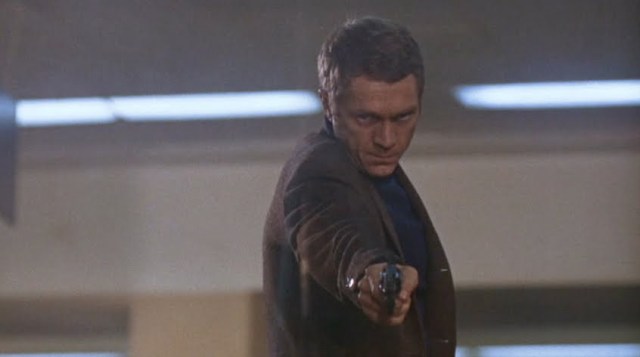“Bullitt”, the first of what would become producer Philip D’Antoni’s “chase trilogy”, (the others being William Friedkin’s 1971 “The French Connection” and D’Antoni’s own 1973 “The Seven-Ups”) is notable for an exciting, impressively realized chase sequence up and down the hills of San Francisco, but also in that it marked a maturing turning point with the American cop film with its central character, police detective Frank Bullitt, finding himself in an existential crisis emerging with the unfolding with the duality of corruption (both criminal and authoritarian) revealing itself during the film’s homicide investigation; a subject of emotional, critical commentary by Bullitt’s lovely girlfriend Cathy, who acts as surrogate Greek chorus during a reflective moment in the escalating mayhem. That a traditional American police melodrama is infused with an existential undertone that might be- incorrectly -attributed to influences from contemporaneous French cinema (especially the films of Jean-Pierre Melville) would render a disservice to the of the important contributions of director Peter Yates unique to his own personal style melding a hard-edged realism with a directorial temperament sensitive to the humanism of the material, no matter how rough-hewn the characters. Based on the novel “Mute Witness” by Robert L. Pike, (a Robert L. Fish pseudonym) the intelligent adaptation by Alan R. Trustman and Harry Kleiner alters characters and events in significant ways while leaving the basic outline of the narrative solidly in place.
To read the complete review, simply click the following link to: https://chandlerswainreviews.wordpress.com/the-concession-stand-quick-snack-reviews/





































































































































































































































































I watched Bullitt for the first time a few days ago. I can’t believe it took so long. It’s a great film.
Good to hear. It is very satisfying isn’t it? It’s one of the few films I recommend to anyone who loves a good movie and never concerned that they will be disappointed.